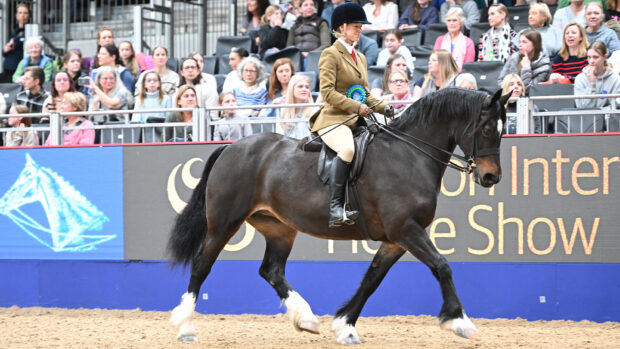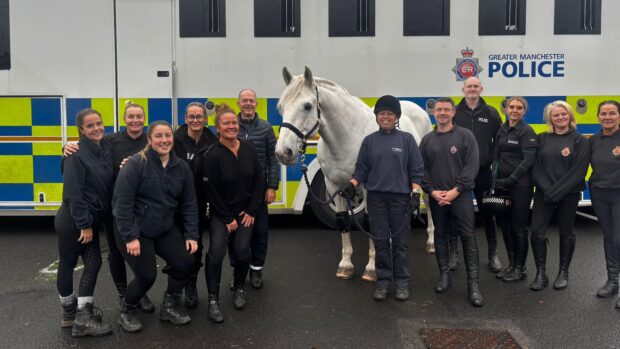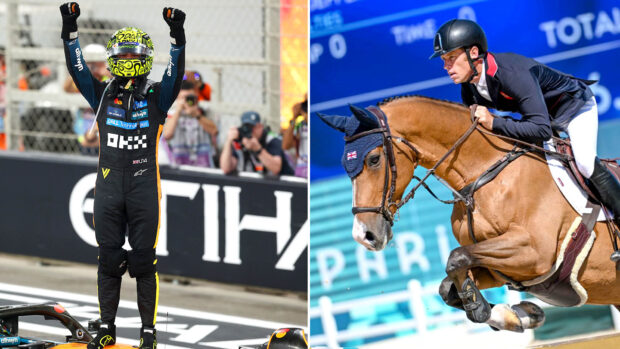POOR decision-making, a lack of cooperation and human error are among the factors contributing to the equine herpes (EHV-1) outbreak that brought horse sport across Europe to a halt during spring 2021, as the FEI concludes “mistakes were made”.
The outbreak started in February when a number of horses who had been competing at the showjumping CES Valencia Spring Tour tested positive for EHV-1, and resulted in a six-week shutdown of equestrian sport across the continent. In total, 18 equines died during the outbreak, and 10 countries had confirmed cases.
Concerns were raised at the time about the management of the outbreak and in March 2021 the FEI said it would conduct a “full and thorough investigation”. On 28 February 2022 the first section of a three-part report was published, providing a “comprehensive and factual picture” of the outbreak and analysis.
The report states that on 20 February, the FEI was first notified of horses with a fever at CES Valencia. The FEI told organisers to cancel the event – but the following day the show continued. It was eventually stopped that afternoon when the FEI warned disciplinary action would be taken if it did not stop immediately.
That day, 131 horses from 11 countries left the venue without the “required health papers”. On 22 February the FEI traced and blocked all 752 horses from CES Valencia on the FEI database.
The rapid spread of EHV-1 at CES Valencia was investigated and factors included the number of horses on site sharing the same airspace, direct and indirect contact, and a lack of preventative measures.
The FEI received information that examination on arrival at the venue “was not correctly conducted” and despite “numerous requests” for the organising committee to provide the FEI with its biosecurity contingency plan – a plan venues must have under FEI rules – this was never provided.
The FEI was told there was “knowledge on site” at CES Valencia of an EHV-1 case in a horse who left the venue on 14 February and returned to France, but there was no official communication to the authorities, the FEI or those at the event. Although six horses onsite had a fever on 19 February and despite the knowledge of the French case, no action was taken to isolate sick horses at CES Valencia that day, and the FEI was not told immediately.
The investigation included the Spanish Sunshine Tour at Vejer de la Frontera, where two horses showed signs of EHV-1, but none tested positive on site. According to sources, the report states, there was an “unwillingness” at the show to test horses specifically for EHV-1. The report states it is “likely” at least one of the horses who left CES Valencia for the Sunshine Tour from 7 to 14 February carried the virus and transmitted it to one or more horses – and examination on arrival at the Sunshine Tour “was not correctly conducted”.
The report concluded while it was “not possible to pinpoint” a single reason or person responsible for the outbreak, several risk factors were present including a lack of preparedness and compliance with regulations, combined with poor decision-making and a lack of cooperation with the FEI.
“The disease itself was not the problem, rather it was the management of it, and unfortunately there were factors – including human error – that allowed the virus to spread much more rapidly than it would have done if the mandated biosecurity protocols had been followed correctly and immediately,” read the report.
“In hindsight, the FEI should have requested permission from the Spanish authorities to allow additional veterinarians on site more rapidly. The FEI did not send help earlier because FEI headquarters was not immediately informed how critical the situation was until alerted by an owner whose horse was seriously ill.”
The report said it was “clear mistakes were made, and everyone – including the FEI – has to take their share of responsibility where appropriate” – adding there has to be accountability for actions or non-actions that enabled the spread of the disease.
CES Valencia did not respond to H&H’s request for a comment. A spokesman for the Sunshine Tour told H&H they did not wish to comment.
You might also be interested in:

EHV-1: FEI to investigate why show continued after organisers told to stop
The FEI has provided clarification on a number of concerns raised about the handling of the equine herpes virus (EHV-1)

‘The most serious outbreak in Europe for decades’: four horses die from EHV-1 as more cases confirmed
In an update today (1 March) the FEI confirmed four horses had died from the neurological form of EHV-1 in

Outbreak of equine herpes virus brings Spanish showjumping tour to a halt
The FEI veterinary department was informed on Saturday (20 February) that four horses who had left the venue on 14

Equine herpes virus – all you need to know right now

Subscribe to Horse & Hound magazine today – and enjoy unlimited website access all year round
Horse & Hound magazine, out every Thursday, is packed with all the latest news and reports, as well as interviews, specials, nostalgia, vet and training advice. Find how you can enjoy the magazine delivered to your door every week, plus options to upgrade your subscription to access our online service that brings you breaking news and reports as well as other benefits.




